Themes
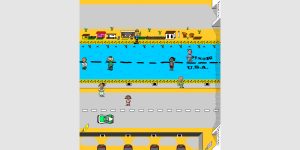
Crosser & LaMigra
Rafael Fajardo (US)
Crosser & La Migra are two video games that represent opposite perspectives on the dynamics at the US-Mexico border, rendered as early arcade graphics and presented as a diptych. Artist and designer Rafael Fajardo is the founding director of SWEAT, a loose collaborative that makes socially conscious video games in order to explore the poetics of interactivity, critique and deploy electronic media, and comment on cultural realities.
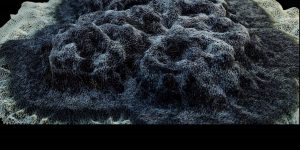
Fermenting Futures: BioArt and Yeast Biotechnology in Uncertain Times
Anna Dumitriu (UK), Alex May (UK)
“Fermenting Futures” is a project by artists Anna Dumitriu and Alex May which traverses BioArt, synthetic biology, digital technologies, sculpture, craft and installation and explores the significance of yeast biotechnology from a cultural perspective and seeks to engage arts audiences in the history and future of this important but under-recognised field.

Frontera!
John Jota Leaños
Leaños directed and produced the animated documentary, Frontera!, retelling the history of the 1680 Pueblo Revolt in New Mexico. The film has been supported by a 2012 Guggenheim Fellowship in Film and Video and a National Association for Latino Arts and Culture Grant, among others. Collaborators: Conroy Chino (Acoma Pueblo), Warren Montoya (Santa Ana Pueblo, Tamaya and Santa Clara Pueblo, Khapo Owinge’), Lee Moquino (Santa Clara Pueblo, Zia Pueblo, Apache/Yaqui), Aimee Villarreal, and Cristóbal Martinez (Alcalde).
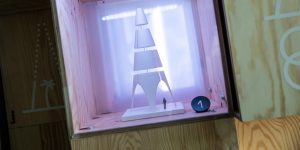
Austria makes Sense - Trip to the Austrian Pavilion at the World Expo in Dubai
The world exhibition Expo 2020, bearing the motto Connecting Minds, Creating the Future, is the first world exhibition in an Arab country. The "Expo" is one of the major international exhibitions recognised by the Bureau International des Expositions (BIE).

Meet the S+T+ARTS Community: Building Open Source Platforms
Joseph Klatt (US), Sören Lex (AT)
Precious Plastic and Precious Plastic Universe, started by industrial designer Dave Hakkens in 2013, is one of those platforms: focused on the reduction of plastic waste through sharing an open source toolkit of technologies and ideas, it has become a global movement of 80.000 people connected by the same passion and vision.

Emilie Trice & LAST/RESORT present Garden del Rio Grande
LAST/RESORT (US)
Garden del Rio Grande pays homage to the geographic region around the Rio Grande River, which runs from central Colorado along the U.S./Mexico border to the Gulf of Mexico. Our garden contemplates how technology can reconnect us to the land and amplify indigenous voices, while questioning to what extent can art and design fortify sustainable ecologies. Through emerging technology we seek to reverse-engineer the past in order to reimagine the future.
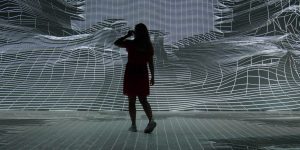
Cubo Negro: Live-Duet Cubo Negro Culiacán and Deep Space 8K Linz
Centro de Ciencias (MX), Ars Electronica Solutions (AT)
Last year Ars Electronica replicated Deep Space 8K in Mexico, Culiacan, where the replica is called “Cubo Negro”. For the Festival the main advantage of Deep Space 8K, namely community experience will be brought to a new level. There will be a Duett between the Deep Space Mexico and the Deep Space in Linz. Visitors from Cubo Negro in Mexico and Deep Space 8K in Linz will be able to play together, live. Same environment, same time, only different destinations.
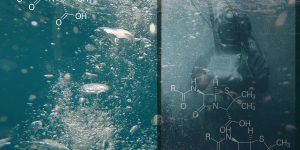
Meet the S+T+ARTS Community: Art & Science Collaborations
Ingeborg Reichle (AT), Michael Sauer (AT), Robertina Šebjanič (SI), Gjino Šutić (HR)
When artists, scientists and scientific research institutions join forces on collaborative projects, the collision of methods often leads to new and exciting perspectives for both the artistic and scientific practice.
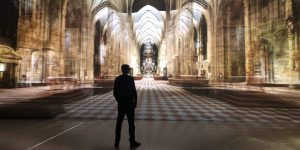
Immersify: The Translucent St. Stephen’s Cathedral
ScanLAB Projects (UK), RIEGL Laser Measurement Systems (AT), Dombauhütte St. Stephan zu Wien (AT), Ars Electronica Futurelab (AT)
The Translucent St. Stephen’s Cathedral invites Deep Space 8K visitors to an interactive 3D-journey through high-resolution 360° images of the Viennese St. Stephen’s Cathedral. The images, consisting of more than 21 billion laser points, together make up the multiple layers of transparency of the beautiful sacred building.
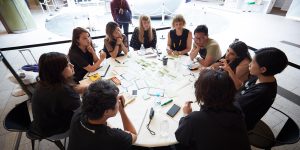
Creative Question Challenge: Ecology – Technology
Alexandra Daisy Ginsberg (UK), Simon Weckert (DE), Kazune Iwasa (JP)
The Creative Question Challenge (CQC) is a new brainstorming format in which speakers explore and present creative questions in a 30-minute dialogue.

Creative Question Challenge: Autonomy – Democracy
Lauren Lee McCarthy (US), Paolo Cirio (IT), Kazuko Tanaka (JP)
The Creative Question Challenge (CQC) is a new brainstorming format in which speakers explore and present creative questions in a 30-minute dialogue.
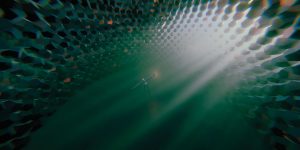
AI x Uncertainty
Jurij Krpan (SL) Speakers: Christl Baur (AT), Suzanne Livingston (UK), Špela Petrič (SL), Stephanie Dinkins (US)
The AIxUncertainty panel focuses on the limitations and uncertainties artists face when developing their work in the frame of AI. What are the challenges for collaboration at the intersection of AI and the arts? What progress can be seen, and where is it failing? What problems do artists face? What frameworks must be created for artists to access their latest research?

Exhibition: Augmented Empathy
As part of The Living Planet, FACT’s programme focusing on the non-human, the artist collective Keiken have developed a multi-layered participatory project called Augmented Empathy in collaboration with FACT’s Learning team.
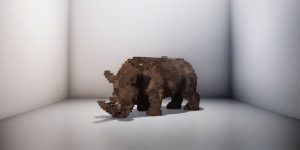
Exhibition: And Say the Animal Responded?
This immersive exhibition brings you face to face with animals from around the world through film, art and creative technology.
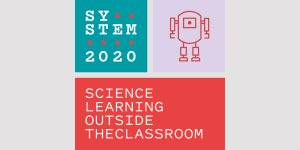
SYSTEM2020 Learner's Perspectives
Discover how learners involvement with out of school science education has allowed them to expand their knowledge and adapt with the changing world around them.

Climate Change from space - 360 degrees
ESRIN, ESA Centre for Earth Observation (IT), Ars Electronica Solutions (AT)
ESA’s Earth Observation Facility (ESRIN) in Frascati, Italy hosts the Φ-Experience – an multimedia centre, comprising an Earth observation data visualization facility. The objective of the “Φ-Experience” is to use interactive display technologies to increase awareness and visibility of ESA’s Earth observation programs and applications.

SYSTEM2020 Map
Science learning initiatives outside the classroom are crucial in educating and forming Europe’s next generation of researchers and innovators. By gaining insights into these initiatives all around Europe SySTEM 2020 wants to gain a better understanding of the types and kinds of programmes in operation, learn from each other and collaborate to be able to respond to challenges ahead. The SySTEM 2020 map is an online visualisation tool where over 2000 STEAM initiatives or projects are mapped providing a network of organisations for you to connect with. For the general public it offers a way to find informal learning initiatives in their area. For organisations it offers the opportunity to get connected and gain visibility as a collective community within Europe.
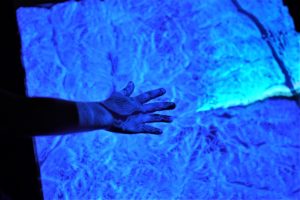
Climate emergency in Vorarlberg: a trip to the exhibition "Global Shift - Die Welt im Wandel" in Bregenz
The climate emergency in Vorarlberg, declared in 2019, not only addresses politics, but also the art and cultural scene have to make a contribution against global warming. The exhibition "Global Shift – Die Welt im Wandel (engl.: Global Shift - The World in Transition)" includes various interactive and participatory stations. These stations observe, document and comment on the traces left using our natural resources.
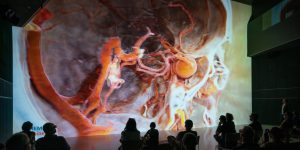
Cinematic Rendering – Dissecting Theatre of the Future
Prim. Univ.-Prof. Dr. Franz Fellner (DE), Dr. Klaus Engel (DE)
Considering how computer tomography (CT) makes it possible to peer inside the human body without resorting to a scalpel is actually quite fascinating in its own right, but the app “Cinematic Rendering” at the Deep Space 8K takes the teaching of the anatomy of the human body to the next level.
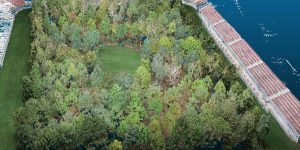
AI x Ecology
Carla Gomes (US/PT), Tega Brain (AU), Mark Coeckelbergh (BE), Lynn Kaack (DE), Stafano Nativi (IT), Claire Monteleoni (US), Martina Mara (AT)
The panel on AIxEcology will focus on the importance of computer-controlled systems for ecology and the environment. Artificial intelligence can be used to save water, stop species loss or detect plants in the field. By optimizing the monitoring of ecosystems, a significant contribution can be made to reduce the risk of climate change and counteract it, as more and more projects try to fight it through data and artificial intelligence.


